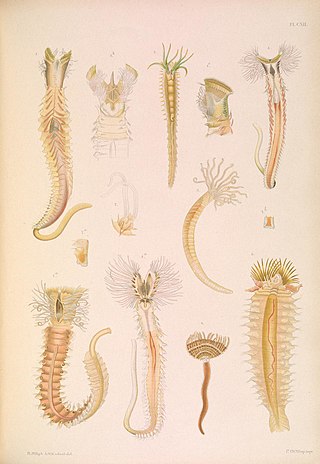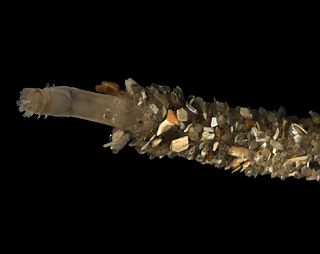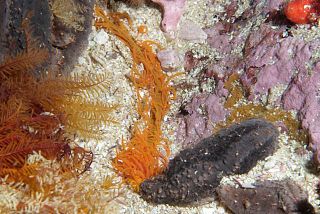| Armandia | |
|---|---|
| Scientific classification | |
| Kingdom: | Animalia |
| Phylum: | Annelida |
| Clade: | Pleistoannelida |
| Subclass: | Sedentaria |
| Family: | Opheliidae |
| Genus: | Armandia Filippi, 1861 |
Armandia is a genus of polychaetes belonging to the family Opheliidae. [1]
The genus has cosmopolitan distribution. [1]
Species: [1]
- Armandia agilis(Andrews, 1891)
- Armandia amakusaensisSaito, Tamaki & Imajima, 2000
- Armandia andamanaEibye-Jacobsen, 2002
- Armandia bifidaParapar & Moreira, 2015
- Armandia bilobataHartmann-Schröder, 1986
- Armandia bipapillataHartmann-Schröder, 1974
- Armandia brevis(Moore, 1906)
- Armandia broomensisHartmann-Schröder, 1979
- Armandia buccinaMoreira & Parapar, 2017
- Armandia casuarinaMoreira & Parapar, 2017
- Armandia circumpapillataMagalhães, Rizzo & Bailey-Brock, 2019
- Armandia cirrhosaFilippi, 1861
- Armandia dolioParapar & Moreira, 2015
- Armandia exiguaKükenthal, 1887
- Armandia filibranchiaParapar & Moreira, 2015
- Armandia garrettiMagalhães, Rizzo & Bailey-Brock, 2019
- Armandia hossfeldiHartmann-Schröder, 1956
- Armandia ilhabelaeHartmann-Schröder, 1956
- Armandia intermediaFauvel, 1902
- Armandia laminosaParapar & Moreira, 2015
- Armandia lanceolataWilley, 1905
- Armandia leptocirris(Grube, 1878)
- Armandia loboiElías & Bremec, 2003
- Armandia maculata(Webster, 1884)
- Armandia mariacapaeMoreira & Parapar, 2017
- Armandia melanuraGravier, 1905
- Armandia nonpapillataJones, 1962
- Armandia opisthoculataMoreira & Parapar, 2017
- Armandia paraintermediaParapar & Moreira, 2015
- Armandia parvaMoreira & Parapar, 2017
- Armandia polyophthalmaKükenthal, 1887
- Armandia salvadorianaHartmann-Schröder, 1956
- Armandia sampadaeGopal, Jaleel, Parameswaran & Vijayan, 2016
- Armandia secundariopapillataHartmann-Schröder, 1984
- Armandia simodaensisTakahashi, 1938
- Armandia sinaiticaAmoureux, 1983
- Armandia tubulataParapar & Moreira, 2015
- Armandia weissenborniiKükenthal, 1887












